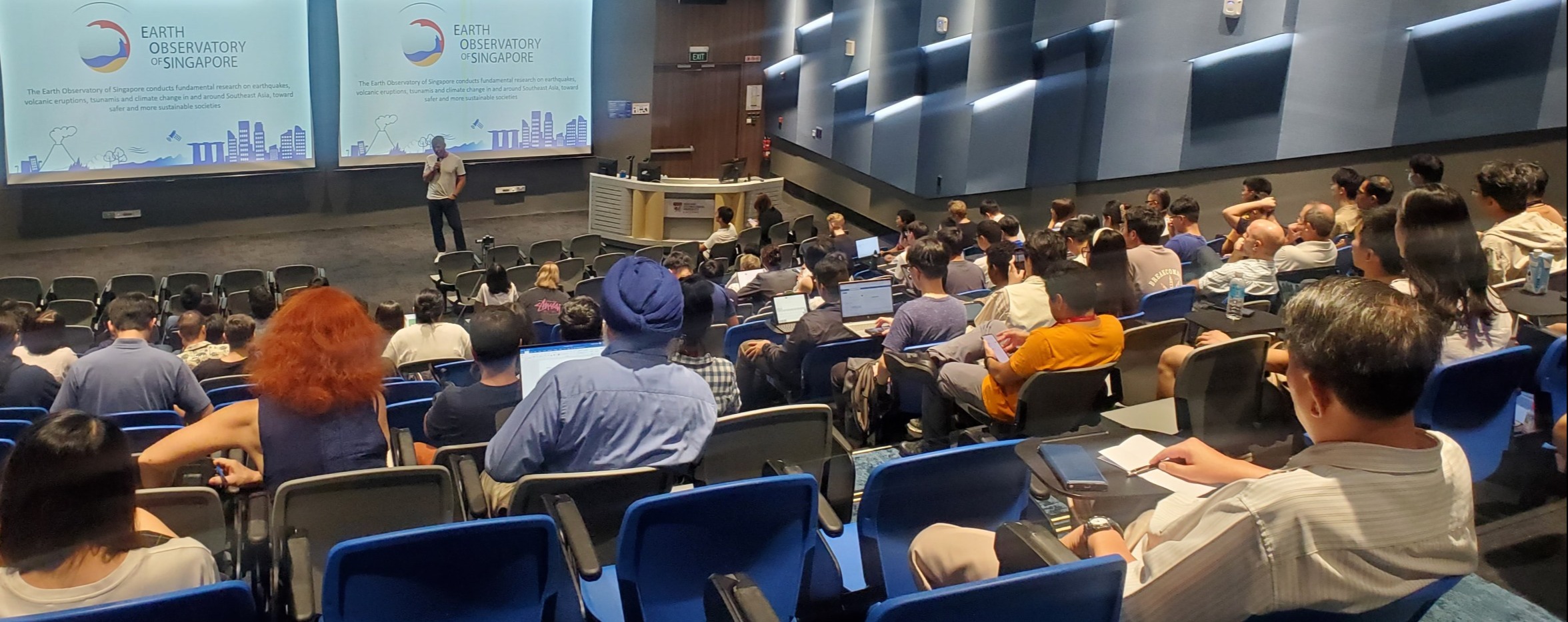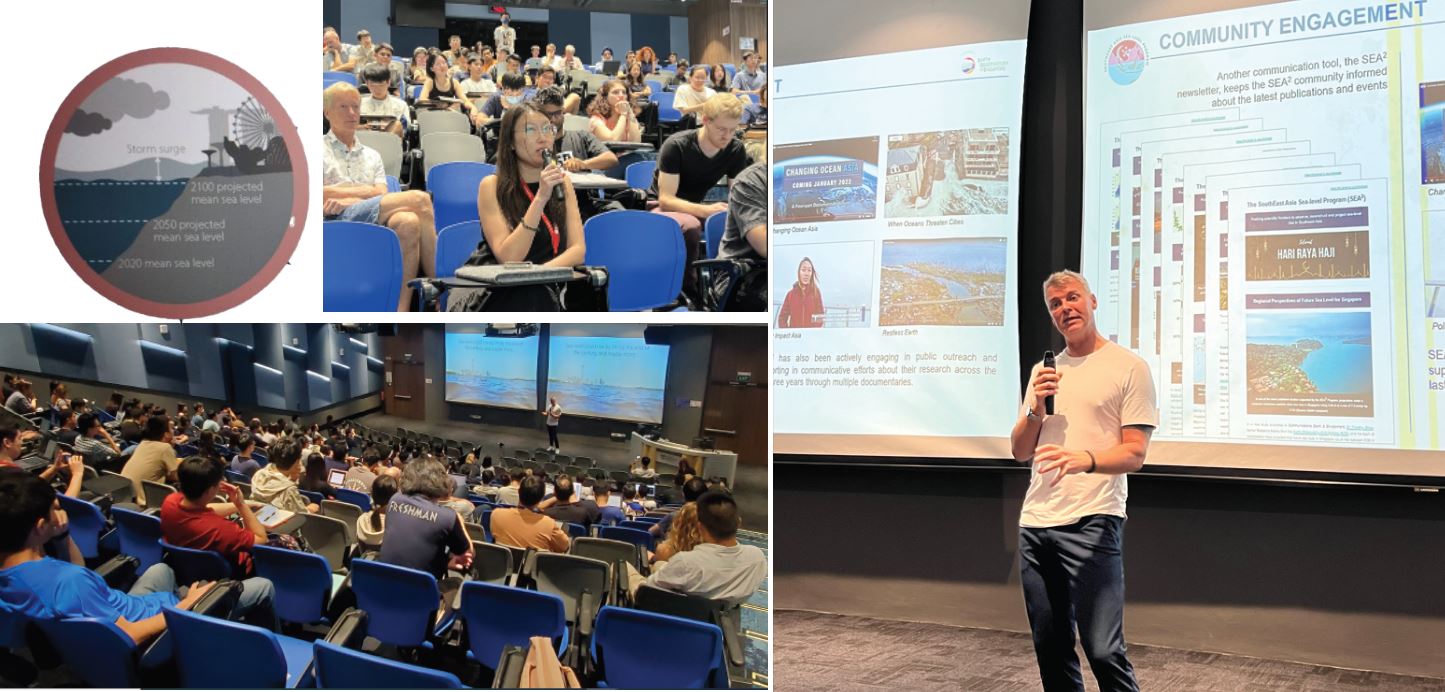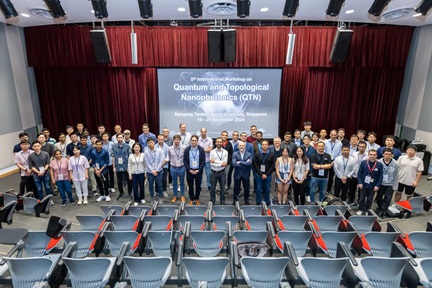Sea-Level Science: Above the Water by Prof Benjamin Horton
IAS Discovery Science Seminar Jointly Organised with the Graduate Students’ Clubs

"Sea-Level Science: Above the Water" was a thought-provoking event hosted by IAS@NTU in collaboration with the Graduate Students' Clubs of ASE, MSE and SCSE . This enlightening seminar featured none other than the esteemed Prof Benjamin Horton, Director of the Earth Observatory of Singapore at NTU, and leader of an expedition to Antarctica. He shed light on the pressing issues of climate change and the increasing frequency of natural disasters. Prof Horton's opening remarks served as a stark reminder of our current reality: we are in the midst of a climate crisis that has evolved over time, with its impacts intensifying, from severe rainfall and heatwaves to devastating droughts. However, amid this complexity, he illuminated the fact that some aspects of climate change are remarkably simple to predict. For example, he highlighted the future occurrence of heat stress – a direct consequence of rising temperatures. Prof Horton explained that we can anticipate this by understanding the warmest times within a day, a year, and even a decade. He also underscored the potential devastation that El Niño, a recurring climate phenomenon, may bring, emphasising the importance of preparedness.
One of the most alarming consequences of climate change that Prof Horton brought to our attention was sea-level rise. The prospect of a one-metre increase in sea level by the end of the century looms large, making the 20th century's rise seem sedate in comparison. He connected this to a warmer, drier climate, citing the alarming surge in recorded wildfires in Europe and a catastrophic wildfire in Canada. This, in turn, led to cities like New York and Baltimore experiencing the world's worst air pollution. In response to these challenges, the Earth Observatory of Singapore (EOS) at NTU is working diligently to provide real-time information, especially regarding wildfires in nearby regions like Sumatra, Indonesia. Such information empowers Singaporeans to make informed decisions about outdoor activities when air pollution from fires is a concern.

Prof Horton also stressed the critical importance of acknowledging Singapore's vulnerability to volcanic eruptions, with approximately 900 active volcanoes in the vicinity. Additionally, in South Asia, densely populated areas are located within 100 kilometres of potentially active volcanoes. Earthquakes were another sobering topic, with 57% of ASEAN countries exposed to this natural hazard. Climate change has intensified the frequency and power of cyclones, and Antarctica is losing an alarming 149 gigatons of ice mass annually.
 Prof Horton passionately addressing questions and concerns from the audience.
Prof Horton passionately addressing questions and concerns from the audience.
As a part of NTU, the Earth Observatory of Singapore shoulders a monumental responsibility to prepare for these challenges and, more importantly, to save lives through the application of scientific knowledge. Following the enlightening presentation, Prof Horton engaged with the audience, addressing their questions and concerns. A pivotal takeaway from the seminar was that each one of us can contribute to climate activism in simple yet impactful ways – such as reusable boxes and cutleries instead of single use plastics.
In a world where climate change poses an ever-increasing threat, Prof Benjamin Horton's seminar provided valuable insights and issued a call to action for individuals and communities alike to take steps toward a more sustainable and resilient future.
"His views on the environment, climate change and action are very insightful" - Koh Yang Chat How Joewin (PhD Student, GC)
"Great insight on current problem of climate change and what has the school been doing to help" - Tay Tian Wen (Master Student, CEE)
"I enjoyed Prof Horton's storytelling style of presentation" - Lee Jian Sheng, Ivan (Undergraduate, CEE)
Written by Perrin Quentin (PhD Student, MSE Graduate Students' Club)














/enri-thumbnails/careeropportunities1f0caf1c-a12d-479c-be7c-3c04e085c617.tmb-mega-menu.jpg?Culture=en&sfvrsn=d7261e3b_1)

/cradle-thumbnails/research-capabilities1516d0ba63aa44f0b4ee77a8c05263b2.tmb-mega-menu.jpg?Culture=en&sfvrsn=1bc94f8_1)






